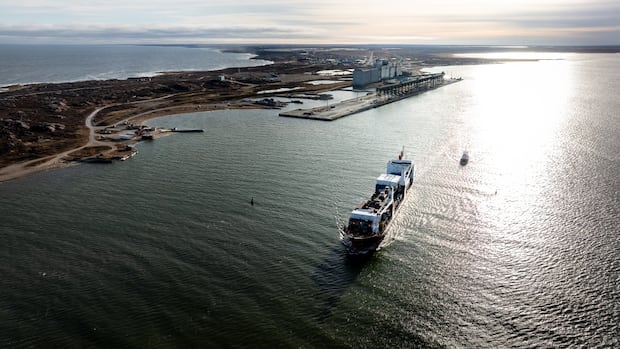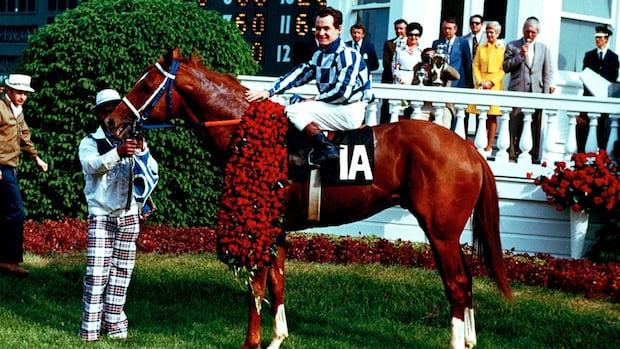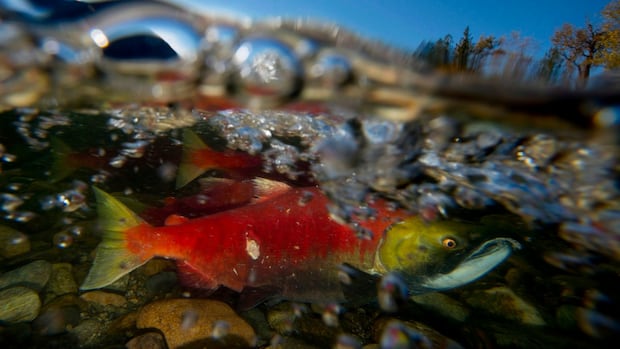In Victoria Joumaa’s Halifax home, there are bedrooms furnished with single beds — soccer balls on the nightstands in one room, a pink owl clock and a plush panda toy in the other — with clothing in both closets, all for children who do not live there.
“We just want to bring our kids home,” said Joumaa, wiping away tears. “That’s it. That’s all we want.”
The children are Joumaa’s biological cousins. She says Anthony Makhlouf, 13, and his siblings, Charbel, 12, and Theresa, 6, have suffered from neglect and abuse most of their lives because their parents struggle with mental health issues and addiction. They have also lived through war.
Joumaa is already their legal guardian, but for the last five years — motivated by the 2020 explosion that killed more than 200 people in Beirut — she has been trying to adopt them and bring them to Canada.
Now, she says, time is running out: the boys will be forced to leave their orphanage at the end of June.
Both biological parents willingly signed over their rights to Joumaa in December 2020, and Lebanese legal documents show that ruling also allows the children to leave the country without their biological parents.
Joumaa, 28, has tried various ways to bring the children to Canada, including through intercountry adoption and temporarily, on visitor visas. In the latter case, she was rejected three times because the federal government doesn’t believe the children will ever leave Canada.
She acknowledges she made some paperwork mistakes before she got a lawyer involved.
At one point, she reached out to her member of Parliament, Lena Metlege Diab, who is now Canada’s minister of immigration, refugees and citizenship, and a member of Halifax’s Lebanese community. The minister’s office said she could not help.
“It is factually and legally untrue that the minister cannot help,” said Chantal Desloges, Joumaa’s immigration lawyer.
A spokesperson said the minister was unavailable for an interview and due to privacy legislation could not comment on specific cases.
Joumaa has provided extensive documentation to CBC News, proving her guardianship and showing the various processes she has attempted in Canada, including the corresponding rejection letters from the Canadian government.
In April of this year, both biological parents also wrote letters to support Joumaa’s most recent application to bring the children to Canada.
‘This is no deserving life for them,’ mother says
“I want Anthony, Charbel, and Theresa to be able to leave Lebanon as this is no deserving life for them, I know they will be cared for, loved, supported and presented with a loving family home with Victoria and her spouse, Jaya, in Canada,” the children’s mother, Ibtissam Mohamad Al Mohamad, wrote.
She noted she has not cared for the children since 2018.
The little girl, Theresa, has been staying with family members, but Joumaa says the conditions are less than ideal, in a cramped apartment. The boys have been staying at a centre for orphans and disadvantaged children, but its director says it cannot accommodate teenage boys. Anthony and Charbel won’t be able to return to the orphanage after they leave for the summer at the end of June.
“I’m very sad and I’m very worried too,” said Sister Rachidé Maalouli, director of the Saint Charbel Center, in an interview in French over WhatsApp.
“We’re going to have street children; it’s terrible.”

Joumaa says she was told she can’t adopt the children in Lebanon because children can only be adopted there if both parents are deceased, and because the country doesn’t recognize same-sex relationships.
Joumaa has been with her partner, Jaya Meier, for two-and-a-half years.
“I always wanted a family and Victoria is my person, and she’s my forever. So I want these kids just as much as she does,” said Meier, who is learning Arabic.
They are both employed, run a business on the side and have savings.
Canadian law dated, immigration lawyer says
Desloges said it would have been easier to bring the children to Canada if they had already been adopted, but she says there are many reasons children can’t be adopted in various countries and that the Canadian law is dated. Improvements need to be made for these kinds of cases, she said.
She said — if they can get here — the children can be legally adopted in Canada after some time has passed.
Joumaa, who immigrated to Canada when she was six years old, said she thought she could pass on her citizenship to the children, but learned she can’t because she received her own citizenship from her father.

In a refusal letter dated February 2023, a citizenship officer said that since 2009, citizenship has been generally limited to the first generation born outside Canada. This means that a child born outside Canada and adopted by a Canadian parent is only eligible for a grant of citizenship if the adoptive parent was born in Canada or if the adoptive parent became a citizen by immigrating to Canada and being formally granted citizenship — as opposed to having it passed down from a parent, as Joumaa did.
Joumaa says she has always maintained strong ties to Lebanon, visiting at least once a year – sometimes for months at a time – prior to the start of the COVID-19 pandemic.
After the last visit in 2019, she said the children clenched onto her legs at the airport, crying and begging her not to leave.
Desloges said there is no time to submit a humanitarian request for permanent residency because that could take years.
Desloges applied for another visitor visa, but this time with a temporary resident permit attached. Canada issues these under exceptional circumstances for people who are inadmissible or ineligible to enter the country in other ways: for example, a person who got laid off while on a work permit, or a U.S. business person with an old impaired driving record who needs to come to Canada for a meeting.
That application was also denied on June 5. Desloges said there seems to have been an error whereby the officer denied the visitor visa and didn’t even address the exceptional addition. She’s filing for a judicial review.
Joumaa signed consent forms giving Immigration, Refugees and Citizenship Canada (IRCC) permission to share information with CBC News.
In a statement, a spokesperson said the visitor visa was again denied because the officer was not satisfied the children would depart Canada at the end of the period authorized for their stay. IRCC has “no additional information to share at this time regarding the consideration of temporary resident permits,” the spokesperson said.
The latest application was supported by 14 letters from Joumaa and Meier’s family and friends in both Canada and Lebanon, with those in Lebanon reiterating the unstable situation there.
“Victoria has my full support in this,” wrote Joumaa’s mother, Rita Makhlouf, who lives in Halifax and is the children’s biological aunt. “I will be there as Anthony, Charbel and Theresa’s grandmother and as Victoria’s mother. Supporting them in any way that is needed or wanted.”
MORE TOP STORIES






